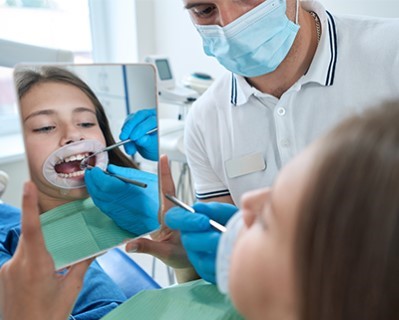Pediatric Dentistry
Purpose: Pediatric dentistry focuses on the oral health of infants, children, and adolescents. It aims to provide preventive and therapeutic care for the unique dental needs of children, including the management of dental growth, development, and early dental issues like cavities, gum diseases, and misaligned teeth.
Procedure: Pediatric dental care includes a variety of treatments, such as regular dental cleanings, fluoride treatments, dental sealants, cavity fillings, and treatment of oral infections. Pediatric dentists also monitor the development of a child's teeth and jaw, offering early intervention in cases of misaligned teeth or bite problems.
Hospital/Clinic Stay: Most pediatric dental procedures are performed in a dentist's office on an outpatient basis. Complex cases or surgeries may require treatment in a hospital setting.
Duration of Hospital Stay: Generally, pediatric dental procedures do not require a hospital stay. Children can return home the same day after treatment.
Type of Anesthesia: Pediatric dental procedures often use local anesthesia for cavity fillings or other minor treatments. For more complex procedures or anxious children, sedation or general anesthesia may be used to ensure comfort and safety.
Travel After Procedure: After most pediatric dental procedures, children can return home immediately. However, for treatments involving sedation or anesthesia, rest and supervision are recommended for the remainder of the day.
Preparation Before Procedure: Before pediatric dental procedures, parents should discuss their child's medical history and any medications with the dentist. It’s important to follow any instructions provided by the dentist, especially when sedation or anesthesia is involved.
Duration of Procedure: The duration of pediatric dental procedures varies based on the type of treatment. Routine cleanings may take 30 minutes, while fillings or extractions may take up to an hour.
Recovery Time: Recovery time after pediatric dental procedures is generally short. Children may experience some discomfort or numbness after fillings or extractions, but these symptoms usually resolve within a few hours to a day.
Estimated Cost: The cost of pediatric dental care depends on the type of treatment, the complexity of the procedure, and the geographic location. Basic treatments like cleanings and fluoride treatments are generally affordable, while more complex treatments like fillings or orthodontics may cost more. Parents should consult their dentist for a detailed estimate.
Post-Procedure Care: After pediatric dental procedures, parents should ensure that children follow proper oral hygiene routines, such as brushing and flossing regularly. Avoiding hard or sticky foods and attending follow-up appointments as needed is also important for maintaining good oral health.

